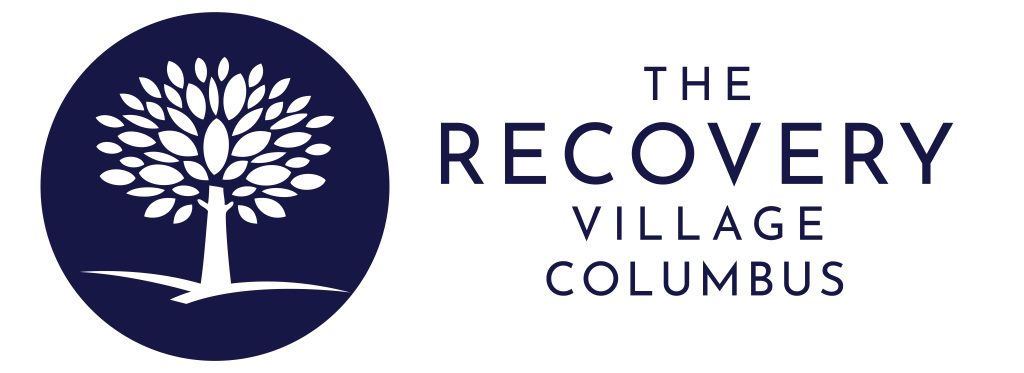Heroin Addiction & Abuse in Ohio

By The Recovery Village Columbus
Last Updated: December 22, 2022
Heroin addiction is a serious, chronic and treatable health condition and an epidemic in Ohio. The Recovery Village Columbus offers high-quality, individualized treatment to support people for long-term recovery.
Towns and cities throughout the United States have been devastated by the opioid epidemic. Opioids, including heroin, claim more lives than motor vehicle accidents, and heroin use is on the rise. In 2016, nearly one million Americans used heroin, with 170,000 of those people being first-time users. That’s nearly double the number of people who tried heroin ten years prior, in 2006.
Heroin Abuse in Ohio
Many Ohio citizens become addicted to prescription opioids each year, and some people also turn to the highly addictive opioid heroin or mix the two. In fact, one in five Ohioans knows someone who is struggling with heroin addiction.
Before the COVID-19 pandemic, deaths caused by heroin overdose were declining. According to the Henry J. Kaiser Family Foundation, Ohio lost 527 people to heroin overdose-related deaths in 2019, down from 1,000 deaths in 2017. However, the current numbers have reached a new high.
An analysis led by the Ohio Attorney General has found that in the second quarter of 2020, Ohioans experienced the highest death rate from opioid overdoses in more than a decade. The hardest-hit counties were Scioto, with an alarming 35.22 deaths per 100,000 people, Fayette with 20.67 deaths per 100,000 and Franklin with 19.43 deaths per 100,000.
The Beginning of Heroin Addiction
For some, the path to heroin use disorder is through opioid medications, which are often prescribed to treat pain. Even though these medications are legal and prescribed by licensed health care professionals, they are also highly addictive. Their dangerous misuse has contributed to almost half of all opioid deaths in the United States. Experts also believe that the misuse of these medications is a gateway to heroin use because heroin is cheaper and easier to come by.
When prescribed an opioid medication, the Ohio Attorney General recommends:
- Discussing alternative treatments with your healthcare provider
- Following instructions exactly
- Tracking your use
- Locking these medications in a simple lockbox
- Safely disposing of leftover medications
Common Signs of Heroin Abuse
Heroin can actually change the structure and functioning of the brain. This can affect a person’s capacity to make decisions, control their behavior and cope with stress.
Heroin is a highly addictive drug that acts on many different parts of the brain and nervous system. When someone uses heroin, they may feel a surge of pleasure, a warmth in their skin and a heaviness in their limbs.
They may also experience:
- Nausea
- Itchiness
- Drowsiness
- Clouded thinking
- Slow heart rate
- Slow breathing rate
- Emotional changes
- Lack of physical pain
Common signs of heroin abuse include:
- Needle marks or collapsed veins
- Sudden weight loss
- Constipation or stomach aches
- Insomnia or difficulty sleeping
- Abscesses
- Frequent illnesses
- Male sexual dysfunction
- Irregular menstrual cycles
- Withdrawal symptoms (restlessness, pain, cold flashes, cravings)
- Lying about drug use
- Confused thinking
- Difficulty making decisions
- Social isolation
- Lack of attention to personal hygiene
- Issues at work or school
Continue reading at Signs, Symptoms and Side Effects of Heroin Abuse →
Why Is Heroin Addictive?
A person who uses heroin is at risk for developing heroin addiction, a chronic substance use disorder that “is characterized by uncontrollable drug-seeking behavior, no matter the consequences.”
Heroin, like other opioids, binds to the opioid receptors in the brain. The substance affects the parts of the brain responsible for reward and pleasure. When they are stimulated, the brain is flooded with feel-good chemicals. Because a person’s brain will naturally seek out the things that make it feel good, it’s easy to become addicted to heroin.
There are both psychological and physical aspects of dependence that a person develops when they take opioids like heroin. The more heroin a person uses, the more they build up a tolerance. This means that they need more and more to get the same effect. As a person uses it for a prolonged period of time, their body becomes physically dependent on the drug. If they try to stop using the drug once their brain and body are dependent on it, they’ll experience withdrawal symptoms, some of which can be extremely uncomfortable.
Heroin Addiction Treatment in Columbus, Ohio
While heroin addiction may seem uncontrollable, high-quality, personalized treatment is available in Ohio. Looking for the right treatment facility can be confusing and overwhelming. It makes sense that you’d want to be thoughtful about which program you select. These are the people that you’ll be leaning on to support you in recovery.
If you don’t know where to start, some questions to ask before choosing a treatment center include:
- Is the treatment facility fully accredited and licensed?
- Are the staff experienced and credentialed?
- Is there a range of programs that can be individualized to support my entire recovery journey?
- Are representatives available to support me in finding out whether this treatment facility accepts my health insurance?
- Are there onsite dieticians to support holistic health in recovery?
- Does the facility offer aftercare?
The answer to each of these questions at The Recovery Village Columbus is yes. There is a range of treatment programs available depending on your specific circumstances.
Treatment Programs at The Recovery Village Columbus
- Medical Detox – Medically assisted detox offers round-the-clock support by medical staff to ensure a person’s safety as their body adjusts to no longer having heroin or other drugs in their system.
- Residential Treatment – Our inpatient treatment programs focus on transitioning from detox to long-term recovery. With distance from destructive influences, we create the space in a comfortable and caring environment to develop life skills, healthy habits and new thought patterns that support recovery.
- Outpatient Treatment – The Recovery Village Columbus outpatient care programs offer customizable support to strengthen the skills needed for life in recovery. No one should have to go at it alone, and we’re here to support the transition to independent living.
- Teletherapy – We recognize that online drug rehab or teletherapy increases access to much-needed support and can be just the right service for some people who are working towards recovery. Our high-quality mental health and wellness app offers personalized information and matches people with a licensed professional to support their recovery journey.
- Aftercare – Recovery is a lifelong journey and we’re here to support you for the long haul. Our aftercare and sober living programs offer a continued network of support and resources that encourage post-rehab success.
- FORTITUDE – Our FORTITUDE program is specifically developed for first responders coping with substance misuse and addiction, co-occurring mental health conditions and post-traumatic stress disorder.

Recovery is possible.
If you or a loved one are struggling with addiction, help is available. Call to speak with a Recovery Advocate about treatment options today.

See If Your Insurance Will Cover Treatment
Complete the form below to see if your insurance will cover treatment.https://ars.secure.force.com/benefitcheck/?site=https://www.therecoveryvillage.com
Contact one of our helpful representatives today as a first step towards recovery. We’re available 24/7. We can answer your questions, verify your insurance and initiate the admissions process.
Ohio Resources for Opiate Addiction
An opioid addiction can occur even after someone uses the drug just a few times — the chemical makeup of your brain can begin to shift. Fortunately, if you are struggling with an opiate or opioid use disorder, there is hope. Facilities like The Recovery Village Columbus can help you.
Additional resources include:
- The City of Columbus – Opioid Crisis Information
- Netcare Access Crisis Hotline: 614-276-CARE (2273)
- Opiate Crisis Line: 614-724-HOPE (4673)
- Harm Reduction Ohio: Get Naloxone online at no cost to Ohio Residents
- Family of Addicts
